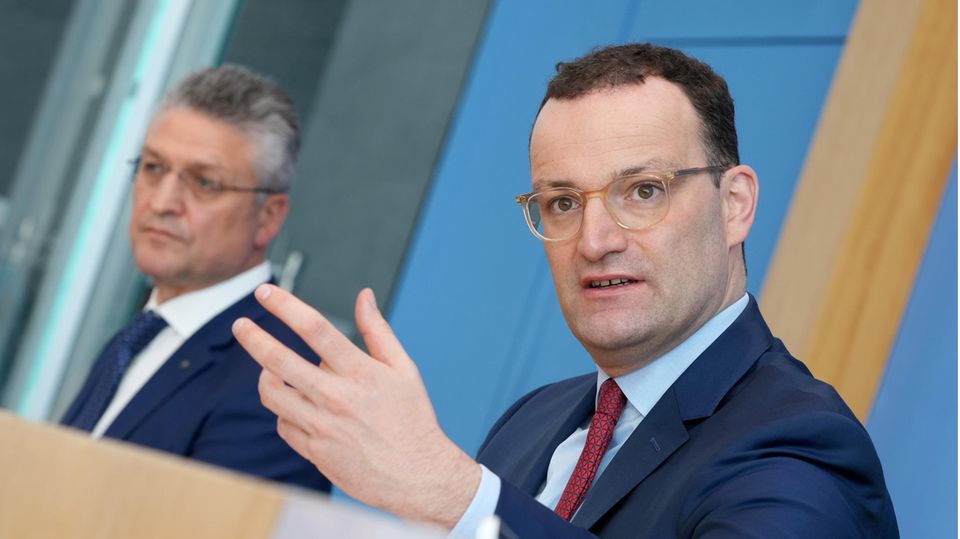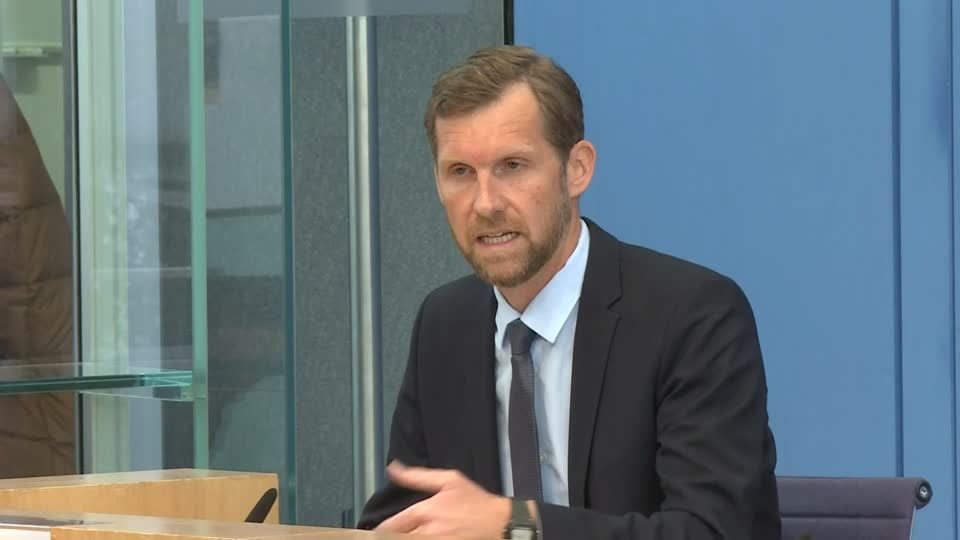Germany is in the middle of the fourth corona wave. Health Minister Jens Spahn and RKI boss Lothar Wieler therefore urge you to adhere to the corona rules and to increase the speed of booster vaccinations.
The acting Federal Minister of Health Jens Spahn sees Germany firmly in the grip of a new wave of corona infections and urges caution and further protective measures. “The pandemic is anything but over,” said the CDU politician in Berlin on Wednesday. In some regions, the number of intensive care patients is increasing, and transfers to other hospitals are already planned. “Above all, we are experiencing a pandemic for the unvaccinated – and it is massive.”
The renewed spread of the virus could also be slowed if more people were to be vaccinated – but he assumes that the “oversized number” of those who have not yet been vaccinated are not ready to be vaccinated, said Spahn.
Jens Spahn suggests three points for breakwater
The minister suggested three points to contain the autumn and winter pandemic. He wants to discuss their implementation with the health ministers of the federal states on Thursday and Friday.
First point: The distance and hygiene rules must continue to be “consistently” adhered to, as well as the 3G or 2G rules, said Spahn. He called on the authorities to monitor compliance with the rules, for example in restaurants and other facilities, more strictly and to punish violations. “We have to control the controls,” said Spahn. In regions with particularly high levels of infection, 2G rules would have to be enforced.

Second point: Spahn proposed stricter and uniform test regulations nationwide for nursing homes. Staff and visitors would have to be tested for the corona virus there, even if they were vaccinated. He referred to the case of a nursing home in Brandenburg, where several elderly residents had died from the virus. “I don’t want to have to experience dying again like last winter,” said Spahn.
third point: The number of booster vaccinations for those who have already been vaccinated must increase rapidly. Since August there have only been two million such vaccinations, “that’s not enough,” said Spahn. Therefore, all countries should write to all people over the age of 60 and point this out. “The booster vaccinations will help break the fourth wave.” Spahn reiterated his suggestion that the federal states should make vaccination offers to citizens again after most vaccination centers have closed – these could also be decentralized and in smaller facilities. Anyone who wants to have a booster vaccination should be entitled to six months after the end of the first series of vaccinations.
Looking at the practices, the minister said: “Too many people who want to be vaccinated cannot currently find a doctor who will vaccinate them.” He therefore wants to talk to doctors’ representatives about solutions.
Wieler: “Solidarity remains the order of the day”
Spahn again campaigned for a federal-state top round on the corona procedure. It is important to take the minister-presidents on board alongside the health ministers and to base decisions on the broadest possible basis. This now makes sense in the transition phase up to the start of the new federal government in order to achieve uniform communication and thus acceptance.
The President of the Robert Koch Institute (RKI) warns of a further worsening of the corona situation in Germany. “If we don’t take countermeasures now, this fourth wave will bring a lot of suffering again. Many people will become seriously ill and die, and the health care system will be heavily burdened again,” said RKI boss Lothar Wieler. Unfortunately, the wave is developing exactly as feared, since not enough people have been vaccinated and the behavioral instructions to protect against infection and the 2 and 3G rules are no longer adequately implemented. “These are terrifying numbers,” said Wieler, referring to the deaths recorded in Germany.
The Charité infectiologist Leif Erik Sander also warned at the federal press conference that the health system would be overloaded. The exposure in intensive care units is related to the number of unvaccinated people. “We see that on our wards,” he said. There are also fewer intensive capacities, since the nursing staff has collapsed due to previous waves. The burden on the staff is immense. Sander also described the vaccination quota as “too low” and called for a campaign for booster vaccinations. Because there would be a decreasing vaccination protection after about six months. Older people are particularly affected. Booster vaccinations could counteract this and increase protection, even higher than after the second vaccination. “The substances approved in Europe are extremely safe.” They effectively protect against serious Covid diseases. Concerns about long-term side effects are unfounded.

Spahn admits misunderstandings at the end of the pandemic emergency
RKI boss Wieler called for vaccinations and compliance with the rules on distance, hygiene, masks and ventilation. The vaccination is not a silver bullet, he made it clear: It does not work the same for all vaccinated. “In addition, the vaccination protection can decrease over time – especially in the elderly, who are already very vulnerable.” Solidarity remains the order of the day, stressed Wieler. “We all want this winter to be the final winter of the Covid-19 pandemic.” Everyone is responsible for the further development of the fourth wave. Many lives could be saved with vaccinations and compliance with the measures.
Spahn also admitted in the press conference that he could have caused misunderstandings with his proposal to let the pandemic emergency declared by the Bundestag run out at the end of the month. “The end of the pandemic situation has been misunderstood by many as a sign that the pandemic is over,” he said. “If utterances from me were understood that way, then I was not clear enough. I say that self-critically.” His message is: “We are leaving a legal state of emergency”, but the pandemic is not over yet.
Source From: Stern




